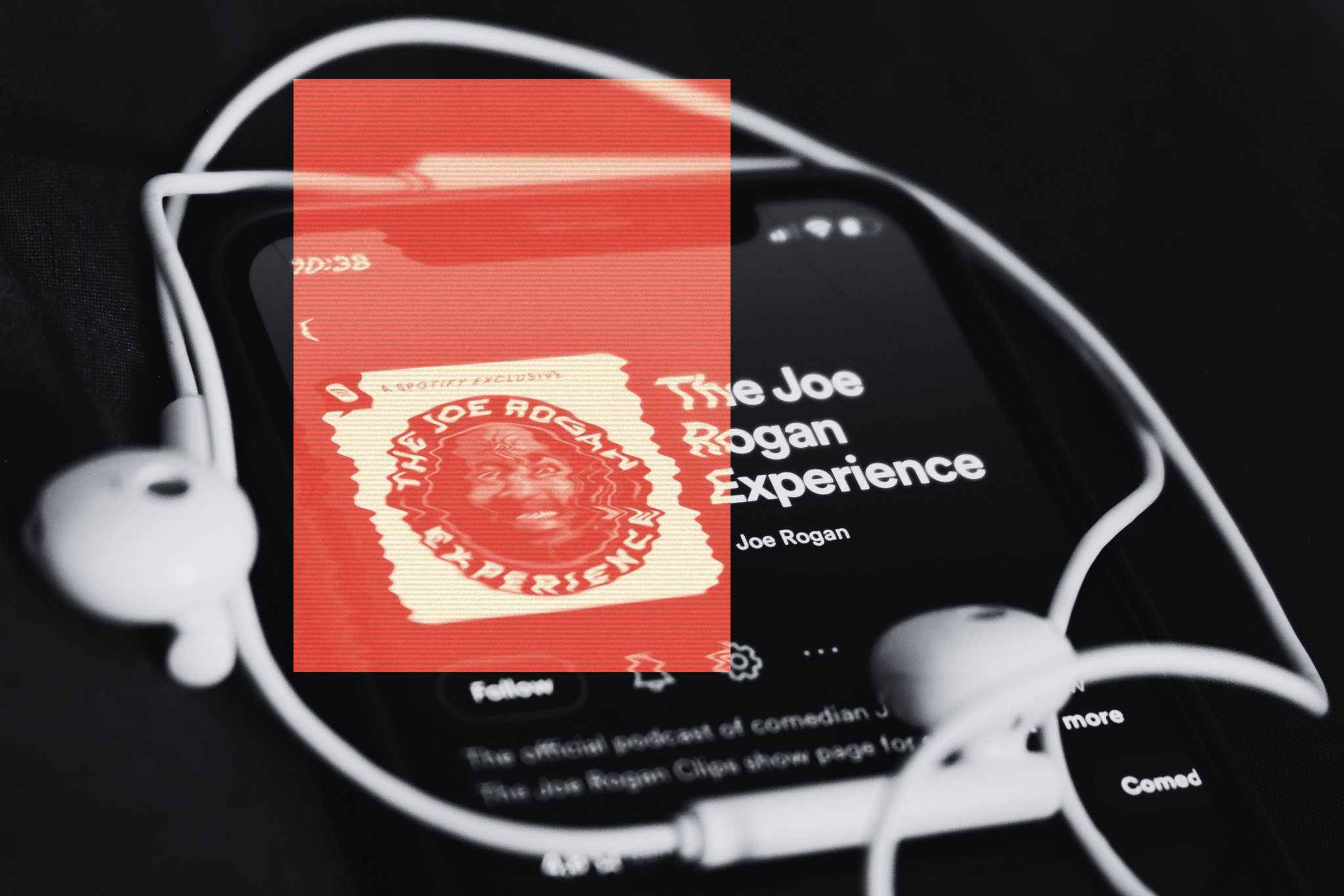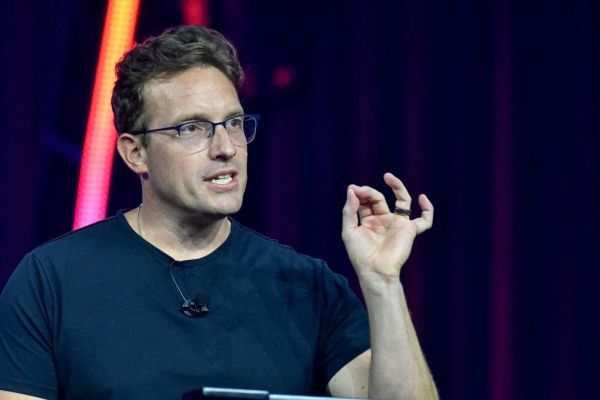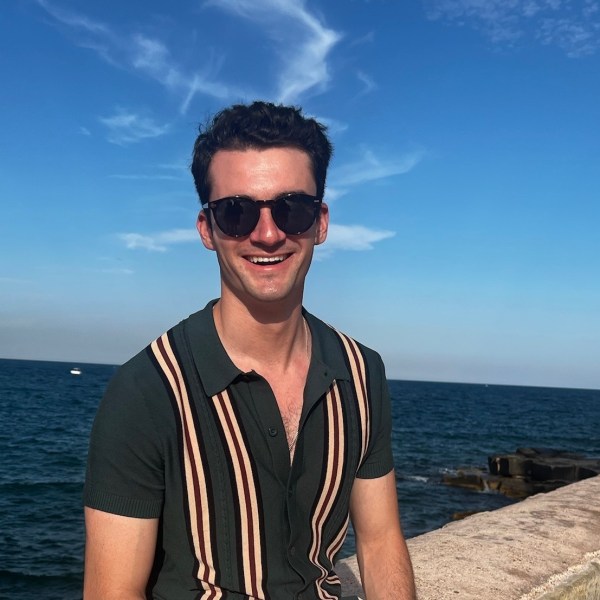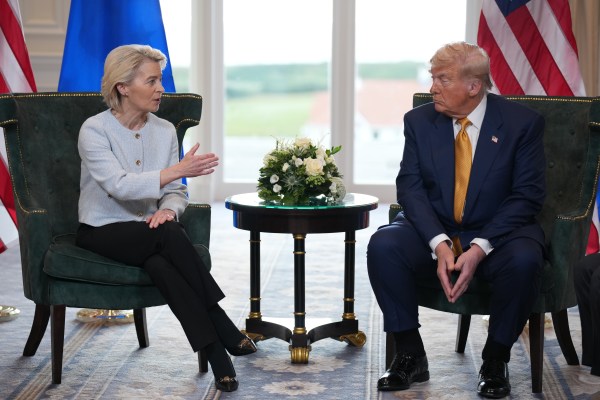An outbreak of measles—a disease once declared eliminated in the U.S.—has hospitalized 91 people in Texas, killing two unvaccinated school-aged children. It is a horrific disease: In severe cases, a child’s immune system collapses, and they suffer seizures and brain damage from encephalitis or drown as fluid fills their lungs.
And any outbreak of measles is entirely preventable. The first vaccine was introduced 62 years ago, and vaccination saved an estimated 60 million lives between 2000 and 2023 alone. Measles epidemics once represented a public health crisis, but today the disease represents a different kind of affliction—one that is both psychological and cultural in nature, and one that is surprisingly resistant to intervention.
On a recent episode of the Joe Rogan Experience, British author Douglas Murray challenged the world’s most popular podcaster over his penchant for hosting “armchair experts” who promote ideas outside of the mainstream. Specifically, Murray cited Rogan’s interviews with Daryl Cooper, a podcaster who has argued that Winston Churchill was the “real villain” of World War II, and comedian Dave Smith, who appeared on the podcast with Murray, and whose taste for criticizing Israel has never inspired him to pay a visit. Murray faced significant backlash from right-wing influencers on social media, while writers at The Atlantic, UnHerd, and Quillette rallied behind him. Yet despite the lengthy conversation, which spanned hours, some crucial concepts were left unaddressed.
The main issue that Murray did not raise was that in the ecosystem that Rogan occupies, many podcasters and their listeners do not read. Murray brought his norms of journalistic rigor into a largely postliterate culture, where information is consumed via aural and visual formats as opposed to the written word. It was a clash of cultures between an author and journalist who primarily lives in the world of printed text, and those who primarily live in the world of conversation and storytelling.

This postliterate shift isn’t merely occurring in digital media ecosystems—it has penetrated some of the world’s most prestigious educational institutions. In an article for The Atlantic last year, Rose Horowitch described students at elite universities who struggle to read an entire book. One first-year student confessed she had never been assigned a complete book throughout high school—only excerpts and articles.
It’s important to distinguish the difference between a literate and postliterate world. For centuries, women died in childbirth at relatively steady rates. Only when doctors started sharing knowledge about obstetric techniques in medical journals did mortality rates start to decline. Sharing knowledge via the written word enhances the accuracy of the transmitted information, whereas oral reinterpretations lend themselves to inefficiency and error.
When an audio-visual narrative culture—which lacks the precision and permanence of written documentation—combines with amateur methods, our collective ability to discern the truth simply deteriorates.
The problem with armchair experts like Daryl Cooper and Dave Smith isn’t what they claim but how they reach those claims. Their conclusions may occasionally align with reality, but they arrive there without the rigor that ensures reliability. When someone forms theories about Churchill or Israel without consulting primary sources or visiting the region, they’re charting territory blindly. Criticism, therefore, should focus on process instead of results: Their flawed methods inevitably produce unreliable findings, even when they occasionally stumble onto correct conclusions by chance.
When it comes to working out what is true in the world, there is a hierarchy of method. If I fear I have cancer in my body, I am perfectly free to visit a psychic if I choose to—but her technique for discovering a malignant growth is going to be less effective than an oncologist’s. This doesn’t mean that the oncologist is always right, or that the psychic is always wrong. What it means is that the tools used by the oncologist—blood tests and radiology—are simply better than sensing, reading tea leaves, or consulting the stars.
Other empirical professions have a hierarchy of methods, too. History scholars examine secondary sources (written accounts of the time period), but also primary sources (manuscripts and contemporaneous eyewitness accounts) of the era they wish to understand. Just as someone who is unable to replace the carburetor of his car cannot call himself a mechanic, anyone who does not consult primary sources in their research cannot call themselves a historian.
“Rigor dampens engagement, and uncertainty saps attention. The marketplace of ideas has been subsumed by a marketplace of emotions, where incentives reward those with the sloppiest procedures.”
Journalism also has a method. While not all journalism is alike (this opinion column is not the same as an investigative piece), one expects journalists reporting on a conflict or protest or natural disaster to do so from the ground.
These empirical professions each employ graduated standards of evidence. Gut intuition, vibes, tea leaves, psychic readings, tarot cards, revelations, and superstition fall below the threshold of acceptable evidence. Just above this threshold sit anecdotes and case studies: “My auntie said she saw a UFO last night.” One level higher are cohort studies, synthesis of secondary sources, and analysis of contemporaneous reports. At the top sit randomized controlled trials, original research using primary sources, and on-the-ground investigative reporting.
Since the mid-20th century, many elite institutions have rejected the philosophical orientation of empiricism in favor of a faddish postmodern view of the world. Postmodernism, alongside romanticist and fundamentalist religious modes of thought, rejects the notion that humans are able to discern what is true through data collection and experimentation. Romanticists believe that the truth is discerned through feeling, fundamentalists through revelation—and postmodernists believe that there is no such thing as truth at all. Our new media ecosystem blends all three of these outlooks, rendering empiricism a quaint relic of another age.
Tucker Carlson speaks of being attacked by demons in his sleep, Candace Owens dismisses the moon landing as “fake and gay,” and Russell Brand sells amulets to his followers to ward off “evil energies.”
During and after the pandemic, Bret Weinstein—an evolutionary biologist who was once hounded out of Evergreen State College, and who is now a professional podcaster—claimed mRNA vaccines were “unsafe for women,” declared to Tucker Carlson that “17 million people” had died from COVID vaccines, and pronounced this imaginary death toll “a great tragedy of history.” But every step Weinstein took away from rigor increased his audience and influence. Peer-reviewed research is slow and time-consuming. Sharing lurid stories of vaccine injuries is easy.
Today, Bret Weinstein’s conspiracy theories span multiple domains. Documented by Chris Kavanagh, of the Decoding the Gurus podcast, and Jesse Singal, independent journalist and Dispatch contributor, Weinstein has suggested that Israel’s unpreparedness for the October 7 attack was deliberately orchestrated by powerful interests to create division among COVID skeptics; China’s one-child policy was strategically designed to create an army of males to infiltrate the U.S. military; and that his own groundbreaking telomere research was stolen by one of his peers—who went on to win a Nobel Prize.
The continuous positive feedback from a growing audience doesn’t just reward methodological shortcuts—it demands them. There is no clearer demonstration of how audience capture drives counter-Enlightenment thinking in digital media than Weinstein’s trajectory. Rigor dampens engagement, and uncertainty saps attention. The marketplace of ideas has been subsumed by a marketplace of emotions, where incentives reward those with the sloppiest procedures.
In his 2022 book, Liberalism and Its Discontents, Francis Fukuyama writes:
The attack on modern natural science and Enlightenment approaches to cognition began on the left, as critical theory exposed the hidden agendas of the elites who promoted them. This approach denied the possibility of true objectivity, and valued instead subjective feelings and emotions as a source of authenticity. Skepticism has now drifted over to the populist right, who see elites using these same scientific cognitive modes not as techniques to marginalize minority communities, but rather to victimize the former mainstream.
What Fukuyama described is an ideological inversion: The left’s tools of deconstruction are now used by the right. Pandora’s box has been opened, and epistemic nihilism cannot be selectively applied. In 2017, a Canadian political scientist, Matt McManus, wrote for Quillette: “postmodern conservatives are not substantially different from their leftwing opponents. Both regard identity as the locus of epistemic and moral validity, and both are preoccupied with achieving power since that is their only major concern.”
We tend to take our modern world for granted—running water, piped-in gas, an electricity grid, internet, superabundant consumer goods, medicines, and life-saving surgeries performed under anesthesia. Citizens in a modern liberal society are like fish in water: They don’t comprehend the luxuriousness of their lifestyles and could not survive without them. We are surrounded by the fruits of liberal capitalism to the point where critics of this system rely on the very tools created by it to condemn it. Yet success has bred complacency, and in the third decade of the 21st century, this complacency is now coming home to roost.
“Sharing knowledge via the written word enhances the accuracy of the transmitted information, whereas oral reinterpretations lend themselves to inefficiency and error.”
The United States, a country founded on Enlightenment ideals, is at a crossroads: Trade policy is conducted according to vibes, anti-vaccine propaganda is spread by the highest health official of the land, and children now die of a once-eliminated disease. A path forward requires a counter-counter-Enlightenment. This doesn’t require censorship or an appeal to authority, but a return to rigor and the written word. While podcasts and videos are undoubtedly entertaining, their ability to transmit knowledge is time-consuming and inefficient. They are the equivalent of the fireside yarn—what humans did before we emerged from our caves. Text may not be as popular as a three-hour podcast conversation, but it remains the form of knowledge most likely to be accessed by future generations. Principia Mathematica was not a podcast, and On the Origins of Species was not a video series. Technologies may continue to create disruption, but we won’t enter a new Dark Age unless we forget the ability to read and write.










Please note that we at The Dispatch hold ourselves, our work, and our commenters to a higher standard than other places on the internet. We welcome comments that foster genuine debate or discussion—including comments critical of us or our work—but responses that include ad hominem attacks on fellow Dispatch members or are intended to stoke fear and anger may be moderated.
With your membership, you only have the ability to comment on The Morning Dispatch articles. Consider upgrading to join the conversation everywhere.